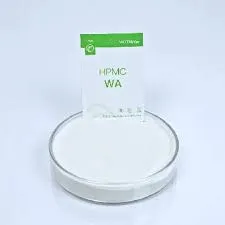
nov. . 09, 2024 13:42 Back to list
HPMC Thickener Applications and Benefits in Various Industries
Understanding HPMC Thickener Properties, Applications, and Benefits
Hydroxypropyl Methylcellulose (HPMC) is a cellulose ether that has gained significant attention in various industries, particularly in food, pharmaceuticals, and construction. Its thickening properties make it an essential ingredient for formulations requiring viscosity and texture enhancement. This article delves into the characteristics, uses, and advantages of HPMC thickener.
Properties of HPMC
HPMC is a non-ionic, water-soluble polymer derived from cellulose, making it an ideal thickener due to its ability to dissolve in both hot and cold water. Its structure consists of hydroxypropyl and methoxy groups, which contribute to its solubility and film-forming abilities. HPMC is available in various grades, which differ in viscosity and chain length, thus providing versatility for different applications.
One of the notable properties of HPMC is its ability to form gels and stabilize emulsions. When hydrated, it exhibits pseudoplastic behavior, meaning it becomes less viscous under shear stress and regains viscosity when at rest. This characteristic is particularly beneficial in applications where easy mixing and application are crucial, such as in coatings and adhesives.
Applications of HPMC
The versatility of HPMC makes it suitable for a wide range of industries
1. Food Industry In food applications, HPMC is used as a thickening agent, emulsifier, and stabilizer. It can enhance the texture of sauces, soups, dairy products, and baked goods, providing a smooth and creamy mouthfeel. Additionally, it often serves as a fat replacer, offering consumers healthier options while maintaining product quality.
2. Pharmaceuticals In pharmaceuticals, HPMC acts as a binder in tablet formulations, ensuring the uniform distribution of active ingredients. Its film-forming properties allow for controlled-release formulations, improving the efficacy of medication. Moreover, it is used in eye drops and other liquid formulations for its viscosity-modifying capabilities.
hpmc thickener

3. Construction HPMC is widely used in the construction industry, particularly in tile adhesives, mortar, and plasters. It enhances the water retention of cement-based products, improving adhesion and workability. The addition of HPMC allows for extended open times, making it easier to work with these materials.
4. Cosmetics and Personal Care In cosmetic formulations, HPMC serves as a thickener and stabilizer in lotions, creams, and gels. It enhances the texture and stability of products, ensuring an appealing application experience for consumers.
Benefits of Using HPMC Thickener
The inclusion of HPMC as a thickening agent offers numerous advantages
- Natural Origin Being derived from cellulose, HPMC is often considered a more natural ingredient compared to synthetic thickeners, appealing to health-conscious consumers.
- Versatility The wide range of available grades allows formulators to choose the appropriate viscosity and performance characteristics tailored to their specific requirements.
- Stability HPMC is stable over a wide range of pH levels and temperatures, making it suitable for use in diverse environments and formulations.
- Regulatory Approval HPMC is recognized as safe for consumption and is approved by various food safety authorities, adding to its credibility as an ingredient.
In conclusion, HPMC thickener is a valuable ingredient across various industries due to its unique properties, versatility, and numerous benefits. As the demand for quality and functional products continues to grow, HPMC stands out as a reliable choice for formulators looking to enhance their products’ performance and consumer appeal.
-
Unlocking the Benefits of HPMC Products: A Gateway to Versatile Applications
NewsAug.07,2025
-
Unleashing the Potential of HPMC Ashland: A Comprehensive Look
NewsAug.07,2025
-
Tile Bonding Cellulose: The Key to Superior Adhesion and Durability
NewsAug.07,2025
-
Hydroxypropyl Methylcellulose Powder: The Versatile Component in Modern Pharmaceuticals
NewsAug.07,2025
-
Hydroxyethyl Cellulose: The Versatile Solution for Various Industries
NewsAug.07,2025
-
Hydroxyethyl Cellulose (HEC): The Versatile Polymer for Various Applications
NewsAug.07,2025







